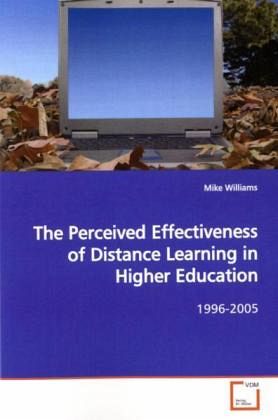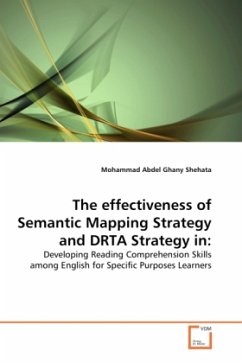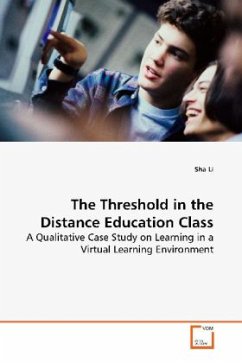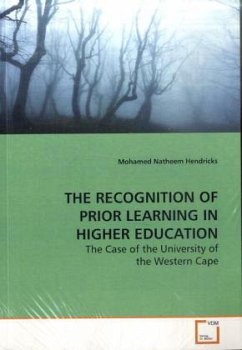
The Perceived Effectiveness of Distance Learning in Higher Education
1996-2005
Versandkostenfrei!
Versandfertig in 6-10 Tagen
32,99 €
inkl. MwSt.

PAYBACK Punkte
16 °P sammeln!
Many American colleges and universities have implemented new forms of distance learning and education, such as the electronic delivery of courses or entire academic programs by video, computer or interactivity through television (ITV). Individual colleges and universities are considering whether to make substantial investments in this technology. In other words, they are circumspectly deciding whether to maintain or to enlarge classroom-based academic programs or to substitute electronic programs, which they believe may offer a variety of positive financial and academic results. In the center ...
Many American colleges and universities have
implemented new forms of distance learning and
education, such as the electronic delivery of
courses or entire academic programs by video,
computer or interactivity through television (ITV).
Individual colleges and universities are considering
whether to make substantial investments in this
technology. In other words, they are circumspectly
deciding whether to maintain or to enlarge classroom-
based academic programs or to substitute electronic
programs, which they believe may offer a variety of
positive financial and academic results. In the
center of this debate, some administrators and
faculty wonder whether distance education may bar
students from the crucial element of interchange
with teachers, researchers, and other students that
prepare students for not only their careers, but
their adult lives as well. Other educators contend
that distance education is just like any other form
of education; it can easily be done well.
implemented new forms of distance learning and
education, such as the electronic delivery of
courses or entire academic programs by video,
computer or interactivity through television (ITV).
Individual colleges and universities are considering
whether to make substantial investments in this
technology. In other words, they are circumspectly
deciding whether to maintain or to enlarge classroom-
based academic programs or to substitute electronic
programs, which they believe may offer a variety of
positive financial and academic results. In the
center of this debate, some administrators and
faculty wonder whether distance education may bar
students from the crucial element of interchange
with teachers, researchers, and other students that
prepare students for not only their careers, but
their adult lives as well. Other educators contend
that distance education is just like any other form
of education; it can easily be done well.












